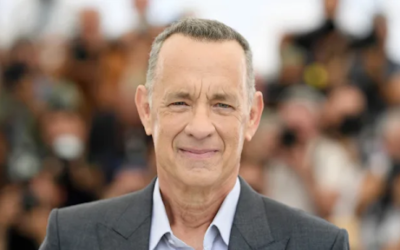Source: The Hollywood Reporter
In November of this year, major motion picture studio announced that it will release its upcoming DC superhero film “Wonder Woman 1984” simultaneously in theaters and on its streaming platform HBO Max. The announcement came as a result of the ongoing COVID-19 pandemic, which is causing surges in outbreaks throughout multiple states and forcing a significant number of the United States’ movie theaters into closure. Through this release strategy, Warner Brothers will be able to earn revenue through ticket sales in the limited number of theaters still open while also allowing those who currently don’t have access to theaters (or at least be able to afford going out to the movies) the opportunity to see the film. Although the film will not come out until Christmas Day, many have speculated how this decision will impact the near future of Warner Brothers’ (if not the entirety of Hollywood’s) theatrical releases. Despite not yet knowing how this tactic will play out for “Wonder Woman 1984”, Warner Brothers seems to not be willing to take any chances; in a move that has shaken the film industry, the studio plans to repeat the strategy for every film it plans to release next year.
On December 3rd, Warner Brothers announced that it will release its entire 2021 filmography in theaters and onto HBO Max at the same time. Among the seventeen films that will be put out by Warner Brothers through this release strategy include the crossover monster movie “Godzilla vs. Kong”, the live-action/animation hybrids “Tom and Jerry” and “Space Jam: A New Legacy”, the action sequel “The Matrix 4”, and another DC superhero movie, “The Suicide Squad”. Not all of these films are big-budget blockbusters though, as smaller films like “Judas and the Black Messiah” will also receive a simultaneous theater/streaming release.
Because of a variety of factors, including the unpredictability of the pandemic, the upcoming transition of power from the Trump administration to the Biden administration, and the uncertainty as to how “Wonder Woman 1984” will perform, many have questioned whether or not Warner Brothers is going too far in applying this strategy to all the films it plans to release in the upcoming year. On the one hand, a COVID vaccine has recently begun receiving distribution throughout the world, and many believe that by the time it reaches the entire world, movie theaters will be completely safe for operation, and there’s no need to instantly put these films on streaming when they could be much more profitable through ticket sales. On the other hand, getting a vaccine to the United States may not be that easy. In fact, Pfizer, one of the companies associated with the development of the vaccine, recently announced that it will not be able to get the vaccine out to the states until June, meaning that most Americans will not have access for quite some time, perhaps too much time for those who are most at risk of contracting COVID-19.
Even taking pandemic concerns out of the equation, many are concerned that the revenue made through a combination of ticket sales and streaming costs (i.e. how many people are willing to pay a monthly fee for access to the service) will not be sufficient enough for the films to break even, let alone make a substantial profit, as opposed to relying solely on ticket sales. This may not be as big of a concern for the films that have reasonably smaller budgets, but for the ones that cost hundreds of millions of dollars, whatever money is earned through monthly fees will most likely not be enough to balance out the films’ production and marketing costs. It would be one thing if Warner Brothers only applies this strategy to a handful of smaller films and maybe a single blockbuster (which would allow “Wonder Woman 1984” to serve as a test of sorts to see how larger-scale films would fare in this situation). However, a release both in theaters and on streaming at the same time is what Warner Brothers intends to do with all its 2021 films, and when looking at all the money being put into these films, the studio could be putting its entire future on the line. If the total revenue received does not match the total costs, Warner Brothers could face a major financial hit, if not the potential for complete bankruptcy.
It’s not just the studios who fear that this move will result in a major financial loss though. Major movie theater chains like Cinemark and AMC have spoken out against Warner Brothers’ decision, claiming that such a release strategy will deprive them of a significant portion of the revenue they receive through ticket sales. The conflict between these chains and Warner Brothers serves as a massive contrast to that between the theaters and another major film studio, Universal. An arrangement between these entities allows Universal to release onto premium video on demand after just over a couple weeks after their exhibition in theaters; in exchange, theaters would receive a portion of the money earned through these on-demand rentals. It’s far from a perfect solution, but given the uncertainty of the current pandemic-stricken society, it’s one that allows both parties to benefit to one degree or another. Warner Brothers has made no such deal with theaters, so it’s understandable for theater chains to be so upset with this decision.
Perhaps no individual has expressed more outrage at Warner Brothers’ announcement as much as one of its most notable figures, director Christopher Nolan, who has had every one of his films distributed by Warner Brothers since 2002 with his film “Insomnia”. “Some of our industry’s biggest filmmakers and most important movie stars went to bed the night before thinking they were working for the greatest movie studio and woke up to find out they were working for the worst streaming service,” Nolan claims in a statement given to The Hollywood Reporter, directly targeting HBO Max. Nolan has received some backlash for his comments though, as it was his insistence that his latest film “Tenet” be released theatrically last summer in spite of the pandemic (and the film’s subsequent underperformance) that may have contributed to Warner Brother’s decision.
Will a simultaneous theater/streaming release work in the end for Warner Brothers, or are the expenses just too great to be recouped through this strategy. The release of “Wonder Woman 1984” may provide some proof as to whether or not this was a smart decision for Warner Brothers, but still, as the majority of this year has proven so far, there’s no such thing as a guaranteed success.




